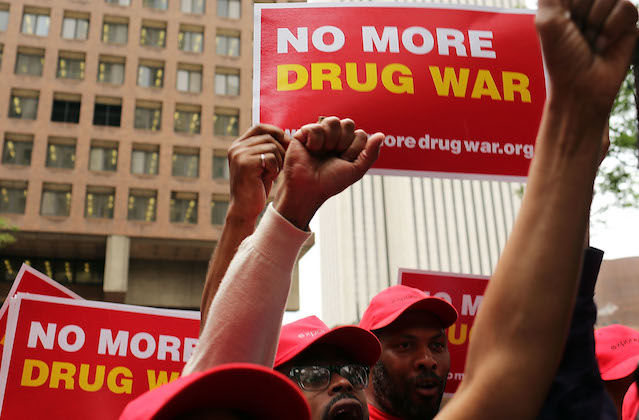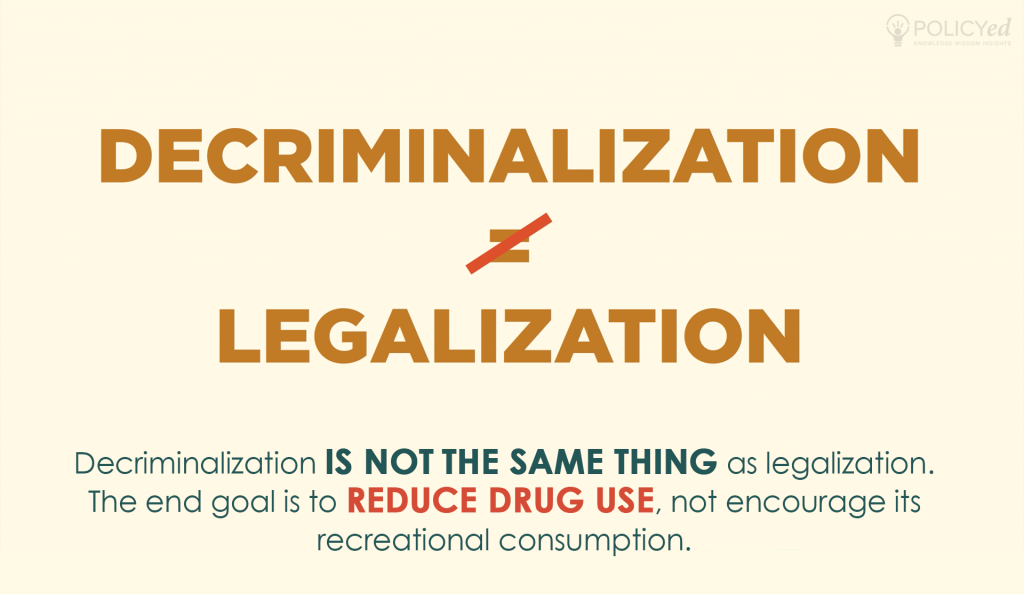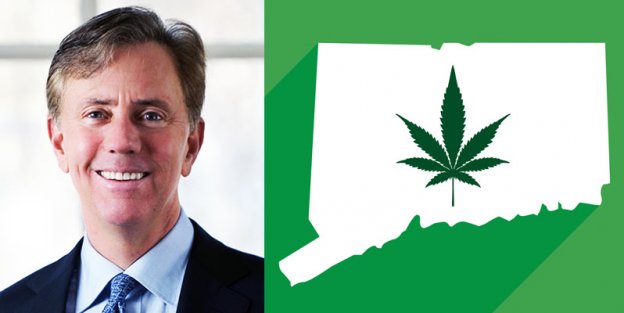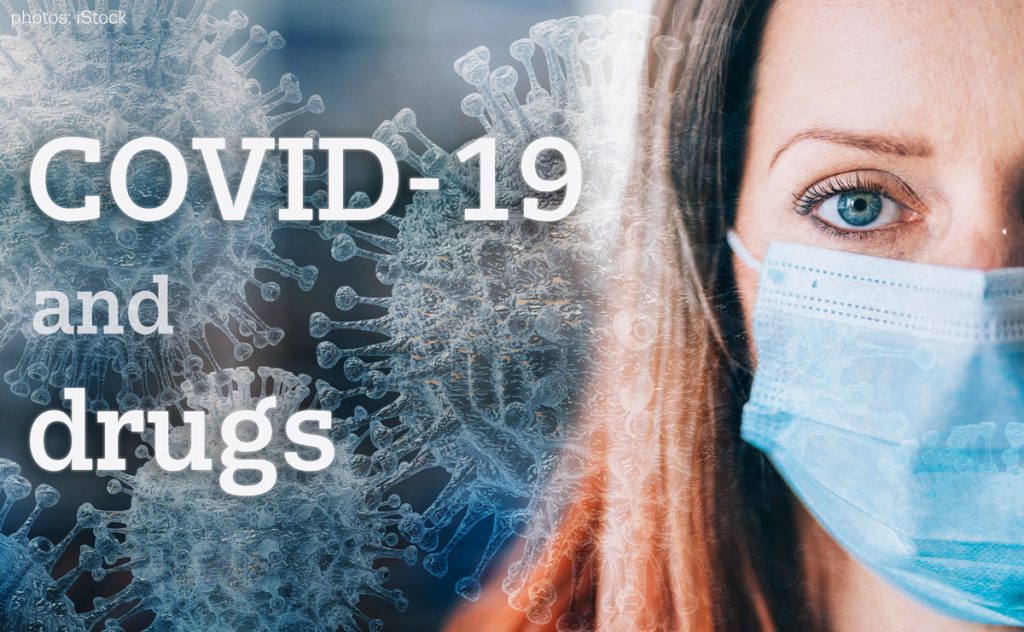
The War on Drugs has been a 50 year long inhumane war that is finally being shifted as states realize that drug addiction is a health issue that needs to be taken out of the criminal justice system. Many innocent people have been killed, abused, and mistreated by the failed drug policies America possessed during the War on Drugs. Decriminalizing hard drugs is going to help shift the war on drugs and it will leave a positive effect on the country. Oregon is the first state in the United States to try to shift the failed drug policies that harmed many people and communities.
“The change represents a substantial shift in America’s half-century long war on drugs that has led to the criminalization and punishment of millions and has disproportionately harmed communities of color.”
MATT SUTTON, DRUG DECRIMINALIZATION IN OREGON OFFICIALLY BEGINS TODAY
Some people may assume that decriminalizing drugs is not good for the country. They might believe that decriminalizing drugs will cause more people to start using hard drugs, and increase addiction rates. The purpose of my post is to show how decriminalizing drugs will benefit the country and is meant to help people struggling with addiction.
People who are struggling with drug addiction are more of a harm to themselves than to society. Drug addiction is considered a social disease, so in that case, drug addicts should be treated as victims rather than criminals. They need rehabilitation, treatment assistance, support, and empathy in order to help them recover. Drug addiction could also start from numerus things and it could happen to anyone. For example, a common way people start to become addicted to drugs is when they go to the hospital and are given opioid painkillers. After being discharged from the hospital, their prescription for those opioids will eventually end. The people who have then became addicted to them would most likely try to get more of those opioids, or even go for a cheaper drug such as heroin.
Changing drug policies and taking drugs out of the criminal justice system will save lives and could help to reform policing. It will also lower incarceration rates and promote people to get the support and service they need to help them recover from their addiction.
“This is part of how we reform policing: by getting them out of the drug business”
BROOKLYN SOCIOLOGY PROFESSON, ALEX VITALE, Oregon’s Decriminalization Vote Might Be Biggest Step Yet to Ending War on Drugs
Oregon Takes the First Steps

Matt Sutton from the Drug Policy Alliance says that Oregon is the first state in the United States to shift the War on Drugs by decriminalizing the possession of small amounts of all hard drugs and greatly increasing access to treatment, harm reduction and other services (Sutton, n.p.). The decriminalization laws were passed under Measure 110. Amelia Templeton, a health reporter for Oregon Public Broadcasting (OPB) describes Measure 110. She says it includes decriminalizing small amounts of cocaine, heroine, Oxycodone, and methamphetamine and also reduces the penalties for possessing larger amounts (Templeton, n.p.). Although, the Measure decriminalized the possession of hard drugs, it does not decriminalize manufacturing or selling drugs (Templeton, n.p.). Oregon realized that drug addiction is a health issue, not a criminal issue and needs to be taken out of the criminal justice system. Drug Policy Alliance is a advocacy group that funded the Measure 110 campaign along with long-standing Oregon allies, which was approved by the voters in the November 2020 election and had gone into effect on February 1, 2021 (Sutton, n.p.). It is going to fund services such as health assessments, addiction treatment, harm reduction, and others for people with addiction disorders. According to Amelia Templeton from OPB, a person possessing drugs would be considered a civil violation, which is basically a traffic violation, and subject to a $100 fine, without possibility of jail time and the person could avoid the fine by participating in a health assessment (Templeton, n.p.). They are funding this Measure by reallocating cannabis tax dollars and law enforcement’s savings from fewer drug arrests (Templeton, n.p.). According to the Drug Policy Alliance, people in Oregon who possess drugs for their personal use will no longer get arrested and have a criminal record, but instead be connected with support services (Sutton, n.p.). Measure 110 would reduce convictions for drug possession by about 90% (Templeton, n.p.), and according to Drug Policy Alliance, the Oregon Criminal Justice Commission that was released by the Oregon Secretary of State’s Office said that the new law will result in a 95% decrease in racial disparities in drug arrests (Sutton, n.p.). This law is meant to protect people against persecution, harassment and criminalization at the hands of the state for using drugs and instead given access to the supports they need (Sutton, n.p.).
The videos below are similar to what was just stated. They are very interesting and describe Oregon’s Measure 110 and what decriminalizing hard drugs means for the state in a compelling way. Since the videos are similar to what I explained, you do not have to watch them.
Treatment Services
It is a huge step to realize that you need help when addicted to a substance and also ask for help. It takes time and commitment to recover, but little time to relapse. According to the National Institute on Drug Abuse, “drug addiction is a chronic disease characterized by compulsive, or uncontrollable, drug seeking and use despite harmful consequences and changes in the brain, which can be long-lasting (drugabuse.gov). Drug addiction treatment is meant to help the person stop using drugs, stay drug free and teach the person how to be productive in the family, at work, and in society (drugabuse.org). There are many different types of treatment for drug addiction because everyone is different. The different types of treatment according to the National Institute on Drug Abuse are:
- Behavioral counseling
- Medication
- Medical devices and applications used to treat withdrawal symptoms or deliver skills training
- Evaluation and treatment for co-occurring mental health issues such as depression and anxiety
- Long-term follow-up to prevent relapse (drugabuse.org)
There is also a National Helpline available 24/7, 365 days a year for individuals facing mental/substance abuse disorders (samhsa.gov). This hotline will provide referrals to treatment facilities, support groups, and community-based organizations that are close to you (samhsa.gov). SAMHSA National Helpline:
1-800-662-4357
After treatment, it may be hard to re-adjust to the new lifestyle. The people who use to enable the drug addiction may be hard to stay away from. Jeffrey Juergens from the Addiction Center say that in order to be successful with recovering from have to find new friends and stay away from that old lifestyle (Juergens, n.p.). It would help to still get involved in support groups to help you through this change.
Recovery Experiences
It is important to look at another person’s perspective. Many people underestimate what someone is going through because it is not happening to them personally. This is a huge problem in today’s society. Hearing a person’s story who struggled with drug addiction will help you understand that drug addiction is a health issue. Some people do not even realize they need help. Decriminalizing drugs will help people in that position get the help they need. Not every story is the same, but here is Meagan’s story.
“I have now been clean for over a year and a half”
Meagan (2:22)
Drug addiction can happen to anyone, even a person who you least expect could be struggling with addiction. It did not take long for Meagan to get hooked on drugs, it changed her. Even though it made her feel tough, it also made her feel sick when she was not high and not care about anything or anyone. When she realized losing her daughter was at stake, she went to her parents to seek help for her addiction. The treatment center saved her life and help her get sober and started focusing on her own goals.
CT taking steps to legalize marijuana
Ned Lamont, the governor of Connecticut is taking the steps to legalize the recreational use of marijuana. In early April of 2021, he was one step closer to fulfilling his mission.

According to the Hartford Courant, on Tuesday, April 6, 2021, the legislature’s judiciary committee voted to advance Lamont’s bill to legalize recreational marijuana (Keating, n.p.). This bill will have 55% of marijuana revenue go to communities that have been impacted by the war on drugs, and about 15% of the money would go toward substance abuse prevention and recovery efforts (Keating, n.p.). Although this is not a decriminalization of hard drugs along with legalization of recreational marijuana, for the state this is a huge step for Connecticut. Connecticut on the road to shifting the war on drugs one step at a time.
How Coronavirus Effected Drug Abuse
Coronavirus has effected everyone in a negative way. It has taken away physical communication, travel, and has everyone staying at home and away from loved ones in efforts to decrease the spread of the virus. Drug addiction and use rates have always been high, but since the pandemic, they have increased dramatically.

With these negative effects from the pandemic, many people have become depressed, feeling like there is no hope, and beliefs that this pandemic is going to never end. These feelings and restrictions can take a huge toll on a person’s mental health. This can lead people to using drugs and eventually abusing them.
Since this pandemic is keeping away in person gatherings, there could not be in person treatment services. In the video below, THV11 describes how Arkansas treatment services are still going on during the pandemic.
Drug abuse since the pandemic started have skyrocketed. From the Addiction Center, Krystina Murry refers 2020 as the deadliest year in drug history. She describes how in 2020, numbers of drug overdoses have hit an all-time high, with the aforementioned states. Oregon witnessed a 40% “death spike” with 580 fatalities because of illicit chemicals (Murry, n.p.). Use of Meth have increased by 37% in a year in Oregon, Cocaine deaths climbed to 57%, Fentanyl death contributed 92%, and Heroin 9% (Murry, n.p.). Oregon is not the only state with high records of drug abuse and fatalities, Virginia and Ohio also exceeded their records of overdoses within a year’s time (Murry, n.p.).
With Oregon’s new decriminalization of hard drugs, they are going to slow down the rates of drug overdoses and deaths. Their new laws are going to offer people treatment services and support to get through these hard times and addiction struggles.
Work Cited
“6 Inspiring Stories of Recovery from Heroin Addiction.” 6 Inspiring of Recovery from Heroin Addiction, startyourrecovery.org/substances/heroin/6-inspiring-stories-of-recovery-from-heroin-addiction.
COVID-19 and Drugs, www.emcdda.europa.eu/topics/covid-19_en.
“Decriminalization Is Different than Legalization, Which Misses the Point. The End Goal Is to Reduce Drug Use, Not Encourage Its Recreational Consumption.” Reorienting The War On Drugs, Policyed, www.policyed.org/intellections/reorienting-war-drugs/key-facts.
“Gov. Ned Lamont Has Been Pushing for Connecticut to Legalize It.” Connecticut Creeps Towards Cannabis Legalization, www.celebstoner.com/news/marijuana-news/2021/04/06/connecticut-marijuana-cannabis-legalization/.
Juergens, Jeffrey. “Life After Rehab – Ongoing Treatments for Addiction Recovery.” Addiction Center, 25 Mar. 2021, www.addictioncenter.com/treatment/life-rehab/.
Keating, Christopher. “Legal Weed a Step Closer in Connecticut as Key Lawmakers Approve Recreational Marijuana Bill.” Courant.com, Hartford Courant, 6 Apr. 2021, www.courant.com/politics/hc-pol-judiciary-vote-lamont-marijuana-bill-20210406-njj7up5gsbahxmsbqsbwnh3mwy-story.html.
Lennard, Natasha. “Oregon’s Decriminalization Vote Might Be Biggest Step Yet to Ending War on Drugs.” The Intercept, 4 Nov. 2020, theintercept.com/2020/11/04/oregon-drugs-decriminalization/.
Murry, Krystina. “2020: The Deadliest Year In Drug History.” Addiction Center, 10 Mar. 2021, www.addictioncenter.com/news/2021/01/2020-deadliest-year-drug-history/.
National Institute on Drug Abuse. “Treatment Approaches for Drug Addiction DrugFacts.” National Institute on Drug Abuse, 24 July 2020, www.drugabuse.gov/publications/drugfacts/treatment-approaches-drug-addiction.
NBCNews. Oregon Becomes First State In Nation To Decriminalize Most Drugs | NBC News NOW. YouTube, YouTube, 5 Feb. 2021, www.youtube.com/watch?v=5Yz5Dq1MuTs.
OPBWeb. Oregon Measure 110 Explained. YouTube, YouTube, 17 Oct. 2020, www.youtube.com/watch?v=gDFijwJHXyM.
PBSNewsHour. Drug Overdoses: The Hidden Epidemic in the Pandemic. YouTube, YouTube, 5 July 2020, www.youtube.com/watch?v=5yOL4KBBx5U.
Platt, Spencer. “Marijuana Legalization Advocates and Members of Community Groups Attend a Rally against Marijuana Arrests in Front of One Police Plaza on June 13, 2012 in New York City.” Because ‘Time for Urgent, Bold Change Is Now,’ 200+ Groups Tell Biden to End Failed War on Drugs, Common Dreams, New York City, 14 Jan. 2021, www.commondreams.org/news/2021/01/14/because-time-urgent-bold-change-now-200-groups-tell-biden-end-failed-war-drugs.
“SAMHSA’s National Helpline – 1-800-662-HELP (4357): SAMHSA – Substance Abuse and Mental Health Services Administration.” SAMHSA, www.samhsa.gov/find-help/national-helpline.
Sutton, Matt. “Drug Decriminalization in Oregon Officially Begins Today.” Drug Policy Alliance, drugpolicy.org/press-release/2021/02/drug-decriminalization-oregon-officially-begins-today.
Templeton, Amelia. “Measure 110 Would Make Oregon 1st State to Decriminalize Drug Use.” Opb, OPB, 4 Nov. 2020, www.opb.org/article/2020/10/15/measure-110-oergon-politics-decriminalize-drugs/.
THV11. Addiction Recovery during COVID-19 Pandemic. YouTube, YouTube, 7 Apr. 2020, www.youtube.com/watch?v=Slc8GINnWD0.